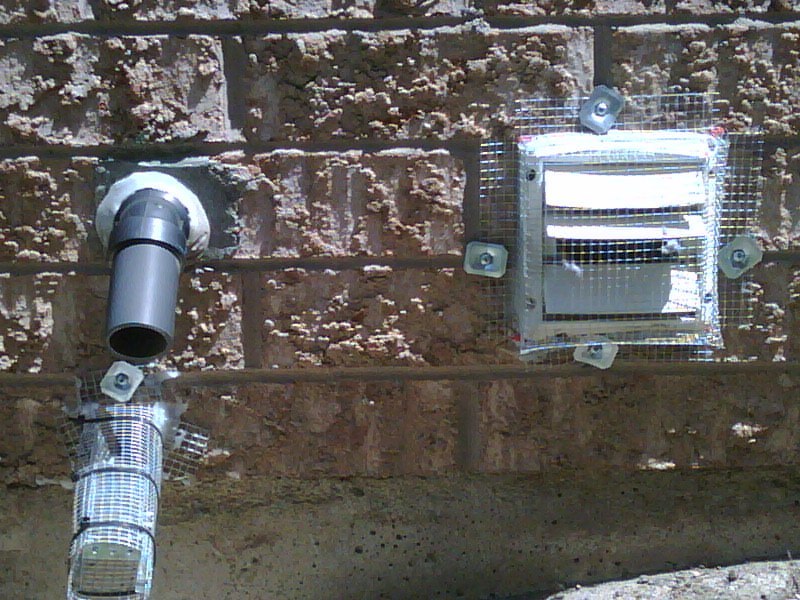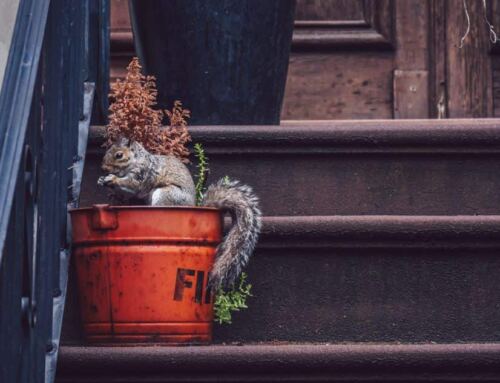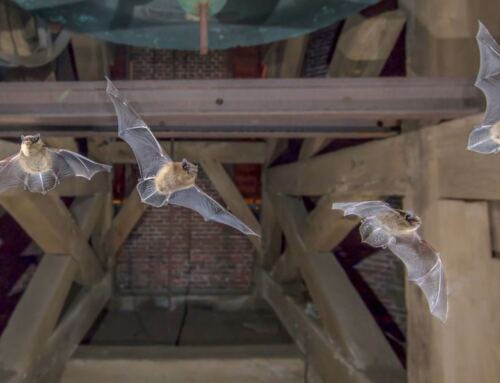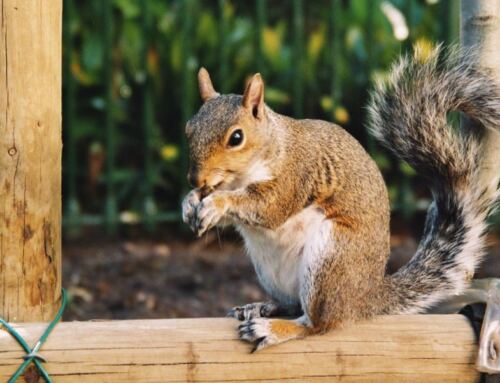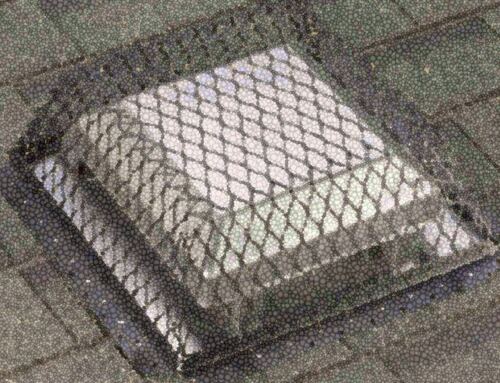There’s an Animal Noise coming from our Attic! No Wait, it’s Coming from the Walls!
You’re a proud homeowner and want to keep your house clean and your family safe. Unfortunately, there’s nuisance pests out there lurking and looking for a way in. Typically, they want to nest to get out of the cold, find food, and/or to multiply! Yes, baby season is often different for a variety of wildlife species and the bottom line is, you don’t want them in your home. They can both cause damage and in the worst cases, also spread disease. So, let’s sleuth here to figure out…
What Animal Noises are you hearing in your home?
Let’s sleuth here and determine noises you’ll typically hear and what animal or pest is guilty of the infiltration!
Animals that typically give themselves away when in your home scratch, claw or are simply heavy enough to give themselves away as they scurry about. The culprits are commonly raccoons, squirrels, mice/rodents, or pests of the flying kind like bats and birds.
Raccoon Noises from the Attic
Raccoons don’t need entry points to exist to get into your home – they make entry points! They lurk at night so when you’re off to bed, they’re just getting started. You’ll hear them very easily as they’ll likely be setting up their own home right above your upper level. They typically use your insulation to set up a cozy nesting place. In sum, if you have raccoons in your attic you’ll hear them as they’ll be wreaking havoc up there and pretty much will be walking on your drywall.
You don’t want raccoons hanging around and causing damage for any length of time. Call a local wildlife control company pronto to get raccoons out and repair entry points (and clean and fix any damage within the attic). Beware that raccoons can also get stuck in your home and you’ll learn quickly that if this is the case, they’ll ferociously try and get free.
They will bring in food sources or find them inside if they can but what’s worse, is that their feces is considered poisonous.
According to the Centre for Disease Control:
Raccoons are the primary host of Baylisascaris procyonis, a roundworm that can be harmful to people. Roundworm eggs are passed in the feces of infectedraccoons, and people become infected by ingesting eggs. Anyone who is exposed to environments where raccoons frequent is potentially at risk.
Squirrel Sounds in the Ceiling
Squirrels love your attic and they’ll find vulnerable entry points where they can get in, or poke at to create them! Your home is their home, so they hope. Given the size of squirrels, you’re very likely to hear them when they’re jumping around up there. The scratching is much more pronounced than, say, bats or rodents.
Squirrels are very active as they’re always on the hunt for food so their back and forth activity is very high. If you suspect squirrels, it’s easy to confirm by just hanging around outside at a fair distance from your home so you can see your roof. Follow them from nearby trees or your backyard as they launch themselves on your home. Also, in many neighbourhoods where homes are so close together, they can simply jump from house to house.
These squirrels need to be trapped or excluded using one way doors and once they’ve cleared your attic, the entry points should be sealed and other vulnerable areas reinforced. Squirrels, like other pests in the attic, can cause significant damage and often start ripping up insulation.
Bats in Your Home Walls and/or Attic
Bats often require only very small entry points to infiltrate your home. You’ll typically hear screeching coming from the walls and scratching (more frantic if they get stuck in there) and you may hear the same from the attic (yet less noticeable). Like raccoons they become active at night while sleeping during the day. It is important not to dismiss faint sounds seemingly coming from the attic at night, as you don’t want bats to colonize within your home, which means big damage/clean up bills will are at hand.
Have you heard histoplasmosis? Good, you don’t want to. It is a disease you can get from exposure to bat guano (droppings). So, don’t ignore any suspicion of a bat problem in your home and call a bat pest control service in quickly to determine the level of bat infiltration within the home or building.
Mice and Rodents Scratching
Rodents aren’t cute if you ask nearly any homeowner and they’re in your walls and attic. Typically, faint scratching will be heard (and the larger they are, the easier they will be to hear – think rats!). They’re gross and unwelcome, yet nearly every home is at least partially already breached by mice. They easily climb brick homes (and other surfaces, too) and they’re contortionists. That means they can bend and squeeze into tiny holes so entering is a often a matter of their will. They seek warmth so the cold is an invite to go indoors. They’re also looking for a safe place to reproduce, which means the multiplier effect is a risk.
Mice proofing a home is a significant job, yet is the only sure way to keep these rodents out once and for all. Setting mice and rat traps and sealing off obvious points are the first steps you need to take.
Birds in Vents and within Walls
Birds nest and their motive is to establish a safe place to lay their eggs. They’ll enter into crevices in your home you were unaware existed and that includes your dryer and bathroom vents if they’re not properly secured on your home wall exteriors. If they get in, they can get stuck in walls or the vents and you’ll hear not-so-happy singing, scratching and wings flapping frantically.
Although you don’t want them in your walls, stuck or not, you definitely don’t want them obstructing any of your homes vents as it could be dangerous. Of course, birds may get into your attic which is no less a problem.
To get rid of birds from your home no matter where they are nesting, call wildlife control experts if you can’t do it yourself safely.
Have wildlife issues in your walls or attic and live in the Burlington Oakville or Halton – Hamilton Region and are hearing noises in your home? Call Regional Wildlife Services today!

